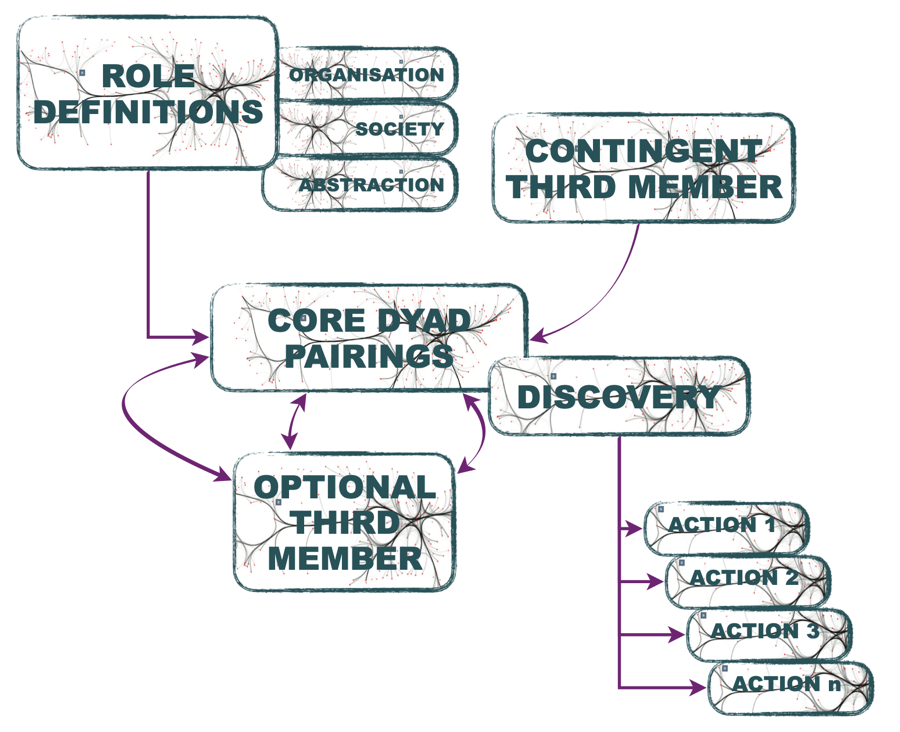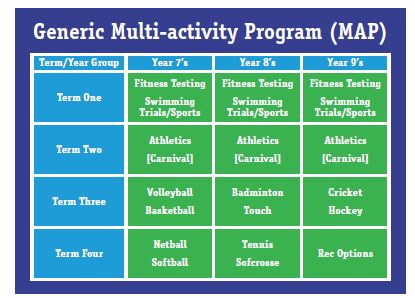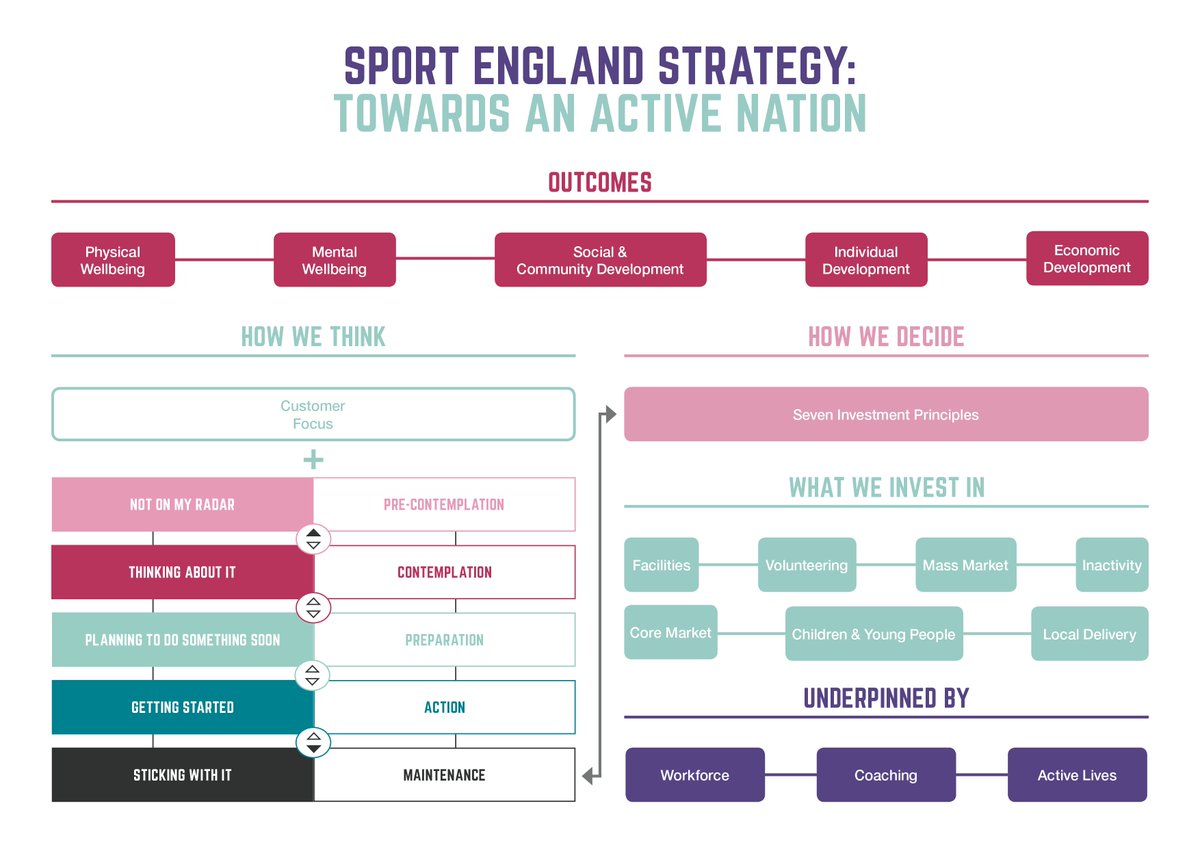
How do we connect sense-makers around:
1. A common respect for the voices of young people;
2. The diverse experiences of those who have spent their lives helping others find meaning in movement?
As @ImSporticus notes, this CSJ paper is not the answer!
threadreaderapp.com/thread/1343452…
1. A common respect for the voices of young people;
2. The diverse experiences of those who have spent their lives helping others find meaning in movement?
As @ImSporticus notes, this CSJ paper is not the answer!
threadreaderapp.com/thread/1343452…
Does school-based sport have a place? Of course! For some, school sport will be a way of becoming entangled in the lives of others in ways which will lead to a pastime becoming a valued, stabilising influence throughout life. That's awesome! #becausehuman
https://twitter.com/ImSporticus/status/1343452107345719297
But as @ImSporticus notes, it's not "sport" that has the impact. That's down to "good people intentionally designing positive experiences through sport" - which is not the same thing!
Ideal: those involved co-creating the positive experiences! #ownership

Ideal: those involved co-creating the positive experiences! #ownership
https://twitter.com/ImSporticus/status/1343452108700479489

Talk of glue, shared interests & civic pride doesn't get us far. Public debate needs to start with a richer & more nuanced appreciation of aspiration & of wayfinding... & if we want "fewer stories like this" & "more stories like that" we need local sense-making & mapping 🗺️ 

Yes, established pathways to finding meaning in movement are a lot more accessible / inviting for some than for others... & that's a tough area... but we're already way, WAY beyond prescribing "a more robust framework of expectations for school sport" 👇
singleblade.co.uk/2020/09/12/tra…
singleblade.co.uk/2020/09/12/tra…
Even those of us who love sport should recognise that "[...] if this trend towards the sportisation of physical education continues there is a danger that the unique identity & individuality of educational purpose for physical education may be affected" 👇
tandfonline.com/doi/abs/10.108…
tandfonline.com/doi/abs/10.108…

Schools figure in strategic level discussion NGBs... but that's overwhelmingly structured around either scope for increasing participation or feeds for talent pathway systems. Do we even get discussion of intra-NGB (cross-sport) collaboration around school/community priorties? 🤔 

We've got people in NGBs & other bodies (e.g. @Sport_England, @_UKCoaching) who are clued in... but they're mostly operating with school PE as a pretty marginal part of their brief... & hugely removed from the discussions taking place around @meaningfulPE, @MeaningfulSport, etc. 

Are PE-based social learning spaces really central to the working lives of those with relevant roles within NGBs & Sport? Or are key players more likely to be in educationally-peripheral intra-sport spaces or coaching-spaces? Where does the @afPE_PE fit in the wider landscape? 

Great work IS being done in this space by the likes of @Greg_Dryer, @HamblinDec & @ImSporticus at @CPESA_Kingston (all strangely absent from the CSJ Paper) - but are WE ensuring they're on the radar in our NGBs & in the other places where we could really do with their input? 🤔 

What might we do differently for 2021? Maybe building on the momentum of @tobyjlowe's @SystemsHuman work?
Might we "Help people discover & steer and own their own pathways for a change" with @BethWatts494, @CharlotWaite, @Jendaffin & @NewSystemAlly?
threadreaderapp.com/thread/1334928…
Might we "Help people discover & steer and own their own pathways for a change" with @BethWatts494, @CharlotWaite, @Jendaffin & @NewSystemAlly?
threadreaderapp.com/thread/1334928…
Practically, I'd like to pick up on two things for 2021 - the first being the strengthening of the informal networks in the space where this well-meaning CSJ paper falls so woefully short.
Recommended New Year's Resolution reading #1: this @snowded blog:
cognitive-edge.com/mycorrhiza-sca…
Recommended New Year's Resolution reading #1: this @snowded blog:
cognitive-edge.com/mycorrhiza-sca…

Secondly, if we have aspirations for "improved leadership" in this area, can we go into 2021 committed to a more meaningful discussion about what we might mean?
Recommended New Year's Resolution reading #2: this @snowded blog (& others since Nov 10th) 🤠
cognitive-edge.com/leadership-in-…
Recommended New Year's Resolution reading #2: this @snowded blog (& others since Nov 10th) 🤠
cognitive-edge.com/leadership-in-…

We're in a place which can witness the production (in all seriousness) of "A Level Playing Field: Equalising access to sport and exercise for young people after Covid-19"...
Like it or not, this is where debate is at. How do we move on from here? 🤔
Like it or not, this is where debate is at. How do we move on from here? 🤔
https://twitter.com/ImSporticus/status/1343452110034247682
Does school sport have a place? Yes. Is it "sport" that has the impact? No! Can we move beyond prescribing "a more robust framework of expectations for school sport"? Maybe - but not if we carry on as we are at present!
A few reflections for 2020 action!
threadreaderapp.com/thread/1343557…
A few reflections for 2020 action!
threadreaderapp.com/thread/1343557…
• • •
Missing some Tweet in this thread? You can try to
force a refresh


![[...] to help girls [...] fall in love with our game at a yo](https://pbs.twimg.com/media/ElvpF7KWkAc3OKQ.jpg)
![[...] 90% of schools (primary/secondary) in England to be pa](https://pbs.twimg.com/media/ElvpIZlXgAYSvLw.jpg)
![[...] 90% of schools (primary/secondary) in England to be pa](https://pbs.twimg.com/media/ElvpJ07XYAA2cgC.jpg)


![[...] a musician exemplifies wayfinding by emotionally engag](https://pbs.twimg.com/media/Elm6oHRXUAIjr1c.png)



